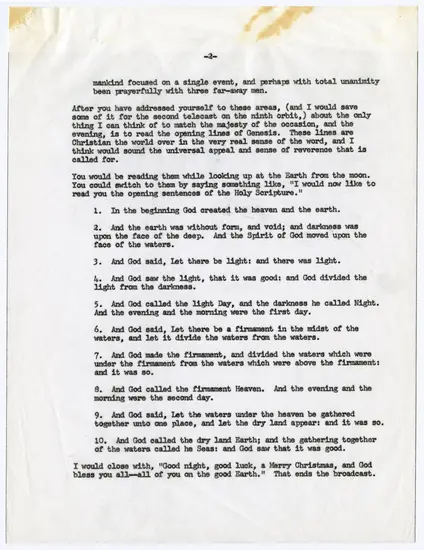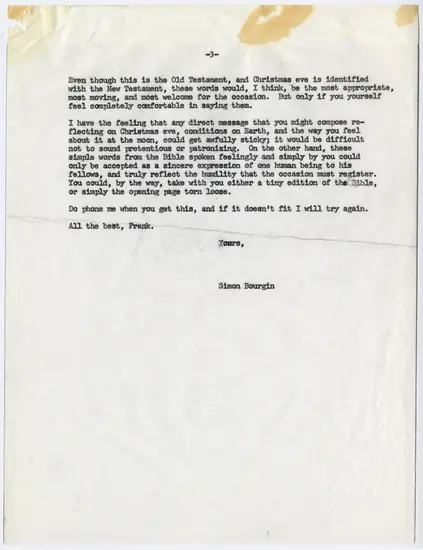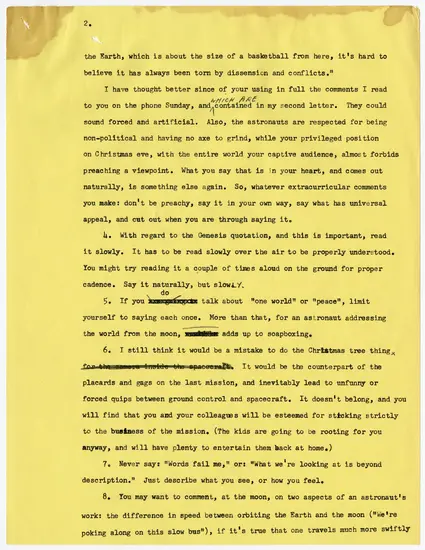
Broadcasting Apollo 8 Live From Space
Dec 21, 2018
By Patti Williams, Archivist
Fifty years ago, three NASA astronauts—Frank Borman, Jim Lovell, and William Anders—orbited the Moon for the first time. On Christmas Eve, they addressed the nation on a live television broadcast to Earth.
How to choose the words to say to mark such a momentous occasion? The National Air and Space Museum’s Archives collection sheds light into the words chosen by the astronauts for that historic broadcast.
As the 50th anniversary of the Apollo 8 flight nears, the National Air and Space Museum Archives would like to share items from our collection that shed light on the words chosen by the astronauts for the Christmas Eve broadcast.
While we have only a surprisingly small amount of material relating to the remarkable Apollo 8 flight, we do hold a collection of letters that belonged to Simon Bourgin, a speechwriter, journalist, and international consultant. During the 1960s and early 1970s, Bourgin was a science policy officer at the United States Information Agency. In that capacity, Bourgin was the liaison with NASA and he came to know the early astronauts as he traveled with them during their international tours to Asia, Europe, and South America.
Before the Apollo 8 mission, astronaut Frank Borman reached out to Bourgin for advice on what he should say to the television broadcast audience during this historic flight. Bourgin suggested that the astronauts might read the first lines of the Book of Genesis, describing the creation of the world.
Here is Bourgin’s carbon copy of the three-page letter he sent to Borman, dated December 13, 1965:
Bourgin also follows up with the following four-page letter, offering Borman additional points of advice regarding extracurricular comments notably, “don’t be preachy, say it in your own way, say what has universal appeal and cut out when you are through saying it.”
The astronauts agreed with Bourgin’s suggestions and on Christmas Eve 1968, in what was the most watched television broadcast at the time, astronauts Jim Lovell, Bill Anders, and Frank Borman read in turn the King James Version text of Genesis Chapter 1, verses 1 through 10.
Related Topics
You may also like

We rely on the generous support of donors, sponsors, members, and other benefactors to share the history and impact of aviation and spaceflight, educate the public, and inspire future generations. With your help, we can continue to preserve and safeguard the world’s most comprehensive collection of artifacts representing the great achievements of flight and space exploration.
Support the Museum
We rely on the generous support of donors, sponsors, members, and other benefactors to share the history and impact of aviation and spaceflight, educate the public, and inspire future generations. With your help, we can continue to preserve and safeguard the world’s most comprehensive collection of artifacts representing the great achievements of flight and space exploration.













